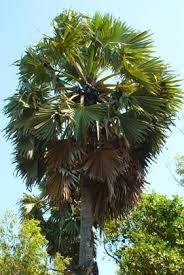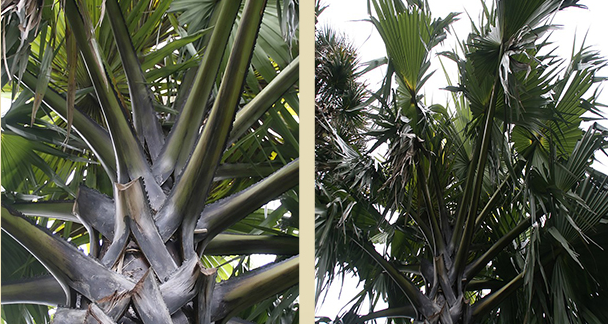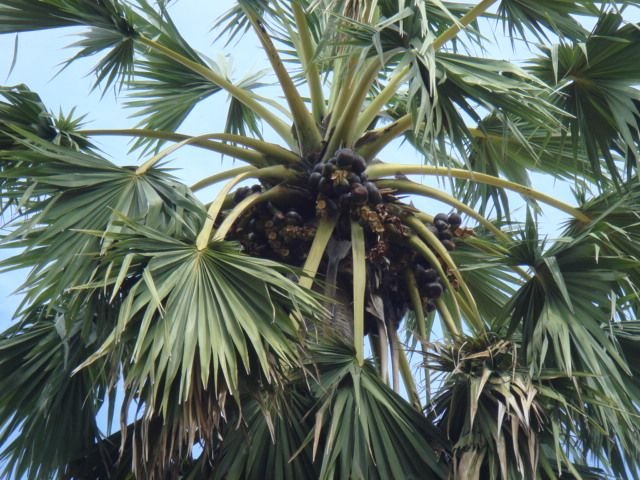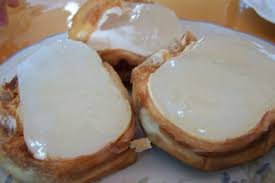
- Kingdom: Plantae
- Divisio: Angiospermae
- Class: Monocotyledoneae
- Order: Arecales
- Familia: Arecaceae (sin. Palmae)
- Genus: Borassus
- Species: Borassus flabellifer
Lontar Tree (Borassus flabellifer) is a kind of palma (areca nut) that grows in Southeast Asia and South Asia. Lontar Tree (Borassus flabellifer) became the identity flora of South Sulawesi province. This tree is widely used leaves, stems, fruits until the flowers that can be tapped to drink directly as legend (nira), fermented into tuak or processed into sugar siwalan (a kind of brown sugar).

Characteristic of Lontar tree traits
Trunked with a height of 15-30 cm and diameter of about 60 cm. Large leaves collect at the end of the stem to form a rounded header. Each leaf has a similar fan with a diameter of 150 cm. Leaf stalks reach 100 cm long Trunked single with a height of 15-30 cm and diameter of about 60 cm. Large leaves collect at the end of the stem to form a rounded header. Each leaf has a similar fan with a diameter of 150 cm. Leaf stalks reach 100 cm long Trunked single with a height of 15-30 cm and diameter of about 60 cm. Large leaves collect at the end of the stem to form a rounded header. Each leaf has a similar fan with a diameter of 150 cm. The petiole reaches 100 cm long.

The fruit is also consumed, especially the young ones. The young seed is still soft, so is the shell, soft and juicy. The old fruit fruits, yellowish and fibrous, can be eaten fresh or cooked first.

Benefits of Lontar for health
In the medical field, this plant has several properties to treat the disease, including old fruit can be used as a skin remedy (dermatitis), extracts young roots of this plant to launch urine and worm medicine, decoction of young roots (decontion) to treat the disease associated with breathing. In addition, lontar or ash mayang (spadix) can be used for the treatment of liver pain, bark charcoal is used to cure toothache, and stem bark stew plus nutritious salt as a cleansing agent.